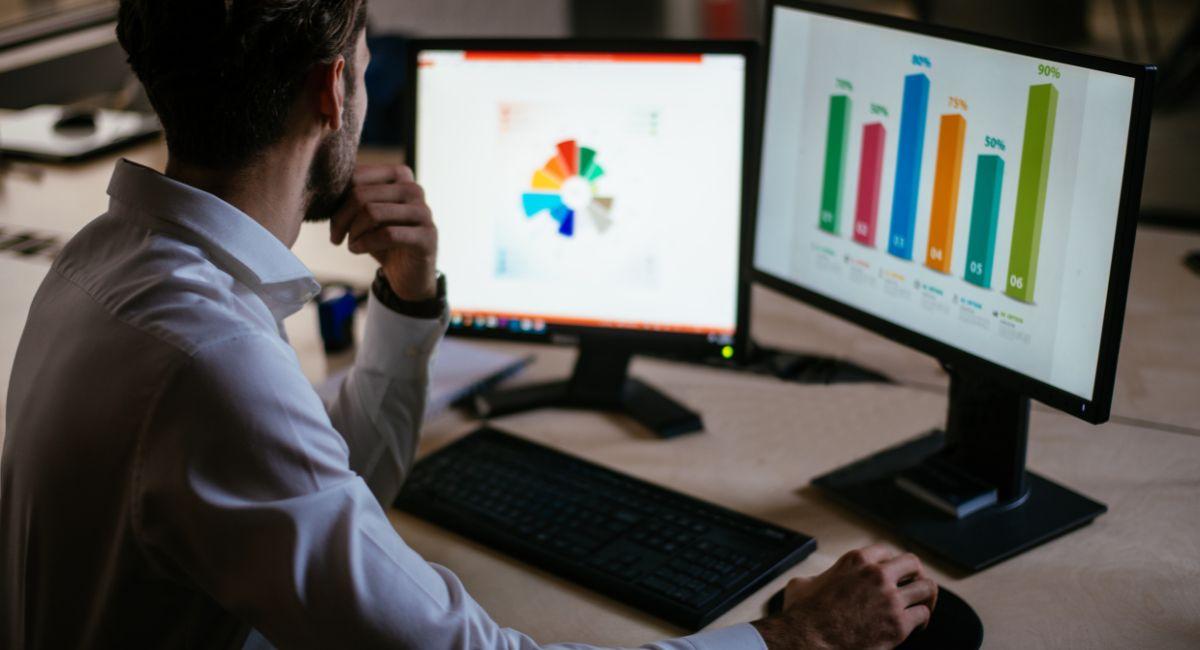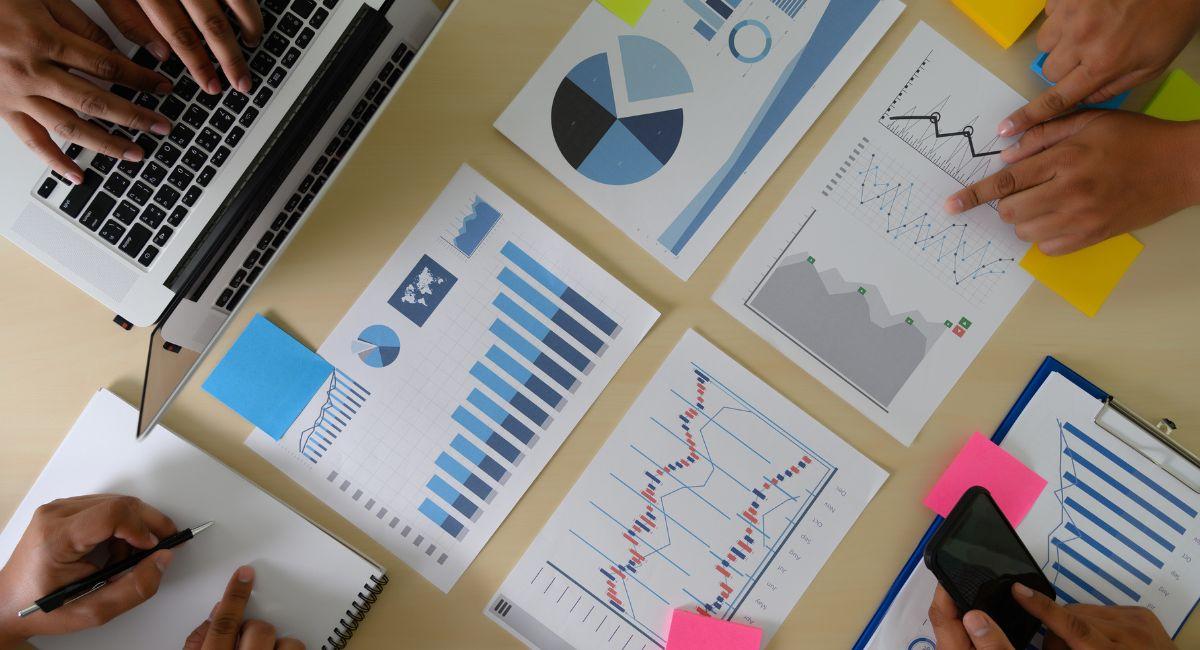Top 8 Amazing Ways R&D Companies Can Use Blockchain To Improve Results

Several research and development (R&D) companies are actively engaged in advancing blockchain technology, exploring its potential applications, and addressing its limitations. These companies play a crucial role in driving innovation, shaping industry standards, and accelerating the adoption of blockchain across various sectors.
One prominent R&D company in the space is ConsenSys, founded by Ethereum co-founder Joseph Lubin. ConsenSys focuses on developing Ethereum-based solutions and infrastructure, including decentralized applications (DApps), enterprise solutions, and developer tools. It also conducts research on scalability, privacy, and interoperability to enhance the Ethereum ecosystem.
Ripple is another leading R&D company, specializing in blockchain-based solutions for cross-border payments and remittances. Ripple’s technology, including the XRP Ledger and RippleNet, enables fast, low-cost, and secure international transactions. The company actively collaborates with financial institutions, payment providers, and regulators to promote the adoption of blockchain in the global payments industry.
IBM is at the forefront of enterprise blockchain solutions, offering platforms and services for businesses across various industries. IBM’s blockchain initiatives focus on supply chain management, trade finance, healthcare, and digital identity. The company invests heavily in R&D to improve the scalability, security, and interoperability of blockchain networks, leveraging technologies like Hyperledger Fabric and Stellar.
Hyperledger, an open-source collaborative effort hosted by the Linux Foundation, brings together industry leaders and R&D organizations to develop enterprise-grade blockchain frameworks and tools. Projects under the Hyperledger umbrella, such as Fabric, Sawtooth, and Indy, aim to address the specific needs of different industries, including finance, healthcare, supply chain, and government.
Startups like Chainlink, Polkadot, and Algorand are also actively involved in R&D, focusing on areas such as decentralized oracle networks, interoperability, and consensus mechanisms. These startups contribute to the advancement of blockchain technology by developing innovative solutions and protocols that address real-world challenges.
Academic institutions and research centers also play a vital role in R&D, conducting groundbreaking research on cryptography, distributed systems, and applications. Universities such as MIT, Stanford, and Cornell have established blockchain research labs and interdisciplinary programs to explore the potential impact of blockchain technology on society.
In conclusion, R&D companies in the space are driving innovation, shaping industry standards, and paving the way for widespread adoption across various sectors. Through collaborative efforts, these organizations are pushing the boundaries of blockchain technology, making it more scalable, secure, and applicable to real-world use cases. As blockchain continues to evolve, R&D efforts will remain crucial in unlocking its full potential and driving positive change in the digital economy.
BlockChain Market Daily News @ 19 Feb 2024
— AIGPU (@AIGPU_ORG) February 19, 2024
BlockChain Daily News February 19, 2024
“2024 Halving: This Time It’s Actually Different
Report by Michael Zhao, Grayscale R&D”
100% Digital Human&Voice,100% generated by AI
All videos are done through Decentralized… pic.twitter.com/9kvudXOmDL
The Significance of Blockchain for Traceability in R&D Companies

The world of research and development (R&D) is built on trust and transparency. From ensuring the ethical sourcing of materials to guaranteeing the validity of data, compliance with regulations is paramount. This is where blockchain technology emerges as a game-changer, offering transformative potential for R&D traceability features. Let’s delve into its significance:
1. Immutability and Trust:
- Blockchain operates on a distributed ledger, where every transaction is recorded chronologically and permanently. This creates an immutable record of material and data movement, eliminating the possibility of tampering or manipulation. This fosters increased trust amongst collaborators, stakeholders, and regulatory bodies.
2. Enhanced Provenance Tracking:
- With each step in the research process captured on the blockchain, R&D companies can track the provenance of materials and data with unprecedented accuracy. This includes details like origin, ownership, handling conditions, and any modifications made. This transparency is crucial for:
- Ethical sourcing: Verifying compliance with regulations on responsible sourcing of materials, especially in sensitive domains like biomedicine.
- Quality control: Identifying potential contamination or inconsistencies in materials throughout the research process.
- Intellectual property protection: Tracking ownership and usage of sensitive data to prevent unauthorized access or misuse.
3. Streamlined Regulatory Compliance:
- Regulatory bodies often have stringent requirements for data management and documentation in R&D. Blockchain simplifies compliance by providing a single, auditable source of truth. This reduces the burden of manual record-keeping and facilitates efficient audits, saving time and resources.
4. Improved Collaboration and Data Sharing:
- Secure and transparent data sharing across research teams and institutions becomes possible with blockchain. This accelerates collaborative research and innovation while ensuring accountability for individual contributions. Secure, permissioned blockchain networks ensure only authorized parties can access sensitive data.
5. Increased Reproducibility and Scientific Integrity:
- By providing a detailed audit trail of data manipulation, blockchain helps ensure the reproducibility of research findings. This strengthens scientific integrity and reduces the risk of fraud or misconduct.
Beyond the benefits mentioned above, blockchain in R&D traceability offers additional advantages:
- Automate workflows: Automating data capture and verification on the blockchain can save time and improve efficiency.
- Enhanced security: Blockchain’s inherent security features protect sensitive data from unauthorized access and cyberattacks.
- Improved public trust: Increased transparency in research can build public trust in scientific advancements and their ethical implications.
Challenges and Considerations:
While the potential of blockchain in R&D traceability is immense, there are challenges to address:
- Scalability: Scalability limitations of some blockchain platforms might need to be overcome for large-scale adoption.
- Integration with existing systems: Integrating blockchain with existing R&D infrastructure and data management systems requires careful planning and development.
- Standardization: Lack of standardized protocols and regulations could hinder interoperability between different blockchain platforms.
Here are a few examples of R&D companies that are actively working on blockchain technology:

-
ConsenSys: Founded by Ethereum co-founder Joseph Lubin, ConsenSys is a leading R&D company focused on developing Ethereum-based solutions and infrastructure. They work on decentralized applications (DApps), enterprise solutions, and developer tools to advance the Ethereum ecosystem.
-
Ripple: Ripple is a company that develops blockchain-based solutions for cross-border payments and remittances. Their technology, including the XRP Ledger and RippleNet, aims to provide fast, low-cost, and secure international transactions for financial institutions and payment providers.
-
IBM Blockchain: IBM offers enterprise-grade solutions and services for businesses across various industries. Their initiatives focus on supply chain management, trade finance, healthcare, and digital identity. IBM invests in R&D to improve scalability, security, and interoperability of blockchain networks.
-
Hyperledger: Hosted by the Linux Foundation, Hyperledger is an open-source collaborative effort that brings together industry leaders and R&D organizations to develop enterprise-grade blockchain frameworks and tools. Projects under Hyperledger, such as Hyperledger Fabric and Hyperledger Sawtooth, cater to diverse industry needs.
-
Chainlink: Chainlink is an R&D company focused on decentralized oracle networks, which enable smart contracts to securely interact with external data sources. Their technology facilitates the integration of real-world data into blockchain applications, enhancing their functionality and reliability.
-
Polkadot: Polkadot is an interoperability project that aims to connect different into a single network, enabling seamless data sharing and communication between them. Their research focuses on scalability, interoperability, and governance mechanisms for decentralized networks.
-
Algorand: Algorand is an R&D company that focuses on building scalable and secure decentralized networks. Their technology aims to address scalability and performance challenges while ensuring decentralization and security for applications.
Also, read- Unveiling The Significance Of Web3 Technology In Blockchain Development
R&D companies can leverage blockchain technology to improve their results in several ways:

- Enhanced Data Security: It provides a secure and immutable way to store research data, ensuring that it remains tamper-proof and trustworthy. R&D companies can use blockchain to protect their intellectual property, research findings, and sensitive information from unauthorized access or manipulation.
- Transparent Collaboration: It enables transparent and auditable collaboration among researchers, allowing them to securely share data, insights, and resources. Smart contracts can automate collaboration agreements, ensuring that all parties adhere to predefined terms and conditions.
- Streamlined Data Sharing: R&D companies can streamline the process of sharing data with external partners, such as universities, research institutions, and industry collaborators. Blockchain-based data-sharing platforms can facilitate secure and efficient data exchange while maintaining data privacy and ownership rights.
- Improved Traceability: It enables traceability and provenance tracking of research materials, samples, and experimental data. R&D companies can use to create an immutable record of the origin, handling, and usage of research assets, enhancing transparency and accountability.
- Incentivizing Contributions: It-based incentive mechanisms, such as token rewards or royalties, can incentivize researchers to contribute their expertise, data, and resources to collaborative R&D projects. Smart contracts can automate the distribution of rewards based on predefined criteria, ensuring fairness and transparency.
- Facilitated Funding and Investment: It-based crowdfunding platforms and tokenization mechanisms can facilitate fundraising for R&D projects, allowing investors to directly participate in funding initiatives and share in the potential rewards. Blockchain enables transparent and auditable tracking of project funding and expenditures, enhancing investor trust and accountability.
- Accelerated Intellectual Property Management: It streamlines the management of intellectual property (IP) rights, including patents, copyrights, and trademarks. Smart contracts can automate IP registration, licensing, and royalty distribution, reducing administrative overhead and mitigating disputes over ownership and usage rights.
- Decentralized Research Marketplaces: It-based marketplaces can connect R&D companies with researchers, experts, and service providers worldwide, facilitating the exchange of skills, knowledge, and services. These decentralized platforms can enable efficient matchmaking, transparent pricing, and secure transactions, fostering innovation and collaboration.
By leveraging the technology, R&D companies can enhance data security, transparency, collaboration, and innovation, ultimately improving the quality and efficiency of their research efforts. As blockchain continues to evolve, R&D companies have an opportunity to explore its potential applications and integrate blockchain-driven solutions into their workflows to drive positive outcomes and achieve their research objectives.
Conclusion
In conclusion, technology offers a multitude of opportunities for R&D companies to improve their results and drive innovation. By leveraging blockchain’s inherent features such as security, transparency, and decentralized collaboration, R&D companies can overcome various challenges and enhance their research processes.
Through secure and immutable data storage, blockchain ensures the integrity and confidentiality of research data, safeguarding intellectual property and sensitive information. Transparent collaboration facilitates and enables seamless sharing of insights and resources among researchers, fostering interdisciplinary collaboration and accelerating discoveries.
Its traceability features enable R&D companies to track the provenance of research materials and data, ensuring accountability and compliance with regulatory requirements. Additionally, blockchain-based incentive mechanisms incentivize contributions to R&D projects, promoting participation and rewarding valuable contributions.
Moreover, it facilitates streamlined funding and investment processes, enabling efficient fundraising and transparent allocation of resources for R&D initiatives. Decentralized research marketplaces powered by connecting R&D companies with global talent and resources, facilitating innovation and knowledge exchange on a global scale.
Overall, technology holds immense potential to transform R&D processes, improve collaboration, and drive meaningful results for R&D companies. As it continues to evolve, R&D companies should explore its applications and integrate blockchain-driven solutions into their workflows to stay at the forefront of innovation and achieve their research objectives effectively.




























































